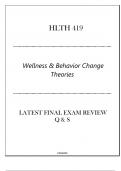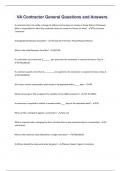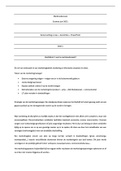Tentamen (uitwerkingen)
(LU) HLTH 419 Wellness & Behavior Change Theories - Latest Final Exam Review Q & S 2024
- Vak
- HEALTH
- Instelling
- Liberty University
(LU) HLTH 419 Wellness & Behavior Change Theories - Latest Final Exam Review Q & S 2024(LU) HLTH 419 Wellness & Behavior Change Theories - Latest Final Exam Review Q & S 2024(LU) HLTH 419 Wellness & Behavior Change Theories - Latest Final Exam Review Q & S 2024
[Meer zien]





